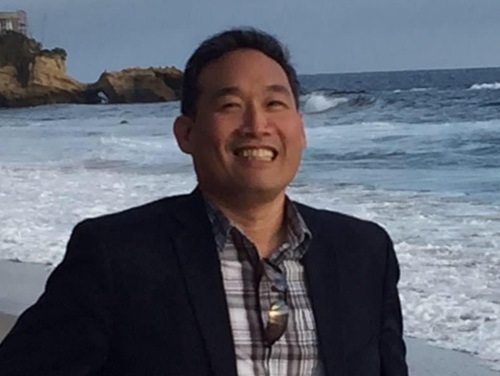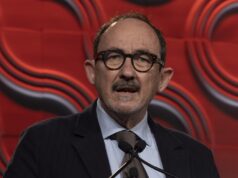
Conrad Yiu, a pioneer and visionary in interventional ischaemic stroke therapy, passed away in the final weeks of 2023, succumbing to the very disease for which he so fervently sought to enable and advance treatment. In a guest piece for NeuroNews, Chloe Brown pays tribute to her long-time colleague and friend, and highlights the fact that Yiu’s death is a saddening yet poignant reminder that “we are all vulnerable” to ischaemic stroke.
In the realm of interventional ischaemic stroke therapy, the global medical community mourns the loss of Conrad Yiu—a pioneering force whose indelible contributions have left an enduring mark on the landscape of neurovascular care. Conrad passed away recently, succumbing to an ischaemic stroke; the very disease he dedicated his life to combatting. His departure leaves a void that resonates across continents and disciplines.
Born with a brilliant mind and an incredible vision, Conrad’s impact on the medical device industry—particularly in the field of endovascular stroke therapy—was nothing short of revolutionary. His involvement in the treatment of acute ischaemic stroke began at Ev3, and he later became a vital part of Covidien and Medtronic before moving on to Viz.ai, where he emerged as a key figure in shaping the trajectory of thrombectomy and its transformative role in ischaemic stroke treatment.
Conrad first witnessed the use of the Solitaire stent-retriever device in the treatment of acute stroke in Hôpitaux Universitaires de Genève (HUG; Geneva, Switzerland) with Vitor Mendes Pereira (University of Toronto, Canada). Captivated by the potential of what lay ahead, he took swift action in the following weeks. Behind the scenes, Conrad worked diligently, connecting key individuals and orchestrating the collaboration that would propel the field forward at a remarkable pace. This visionary initiative marked the genesis of the STAR trial—a groundbreaking endeavour that would underpin the future of ischaemic stroke trials.
Colleagues and friends remember Conrad as a force multiplier; a visionary with an infectious laugh that could light up any room. His commitment to pushing boundaries and achieving tangible results was evident in his advocacy for groundbreaking trials like SWIFT Prime, ESCAPE, EXTEND-IA, and REVASCAT, all of which played a pivotal role in altering the standard of care for ischaemic stroke patients, ushering in a new era of therapeutic possibilities.
“Conrad has helped us shape the field of endovascular stroke therapy,” remarked Vitor Mendes Pereira. “It was his vision that connected many of us in the early days of mechanical thrombectomy and resulted in the early trials, stroke networks, and groundbreaking papers. He was the driving force behind many of the great achievements that built the foundation of our field today. I still remember our meetings with Jan Gralla and Stacey Pugh in designing the STAR trial, and how it influenced my whole career after. We will miss his passion, enthusiasm, wisdom, and his smile! Rest in peace, Conrad—we will keep fighting against this terrible disease in your honour.”
However, Conrad’s impact extended far beyond the confines of clinical trials. His relentless pursuit of improving stroke treatment globally was characterised by his involvement in numerous projects, studies and initiatives aimed at reaching under-served populations. His tireless efforts exemplified his commitment to the mantra that “no patient should be left behind” in the fight against this debilitating disease. It is both ironic, and overwhelmingly sad, that this mantra unfortunately did not ultimately extend to his own life.
As a mentor, Conrad had a profound impact on my own career. He brought me to the Ev3 headquarters in Paris in 2011 to develop stroke educational and referral programmes with Vitor Mendes Pereira in Geneva; Tommy Andersson in Stockholm, Sweden; and Jan Gralla in Bern, Switzerland. Conrad inspired creativity, encouraged big thinking, and helped transform ideas into reality.
“Conrad has been an inspiring and energetic person, and a driving force especially to get endovascular stroke treatment established,” said Jan Gralla (Inselspital, University of Bern, Switzerland). “He has left a major impact on neurovascular treatment, and the way of cooperation between physicians and industry. Our community will miss him.”
Conrad’s pursuit of enabling treatment for acute ischaemic stroke extended beyond treatment with devices. He knew that a big gap remained in the ability for patients to be quickly diagnosed with a treatable large vessel occlusion. Seeing the potential benefits that artificial intelligence (AI) could bring to help tackle this problem, he joined Viz.ai in 2018 to aid Chris Mansi, Manoj Ramachandran and David Golan in the development of their diagnostic platform for acute stroke, which is intended to automate the diagnosis of this condition, providing support for less experienced physicians and enabling faster treatment for patients.
Chris Mansi, co-founder and chief executive officer of Viz.ai, said: “Conrad joined Viz.ai in January 2018, helping the company pioneer the first AI FDA [Food and Drug Administration] approval via the de-novo pathway, aimed at improving outcomes in stroke. He brought his relentless passion to Silicon Valley, ensuring that what was at the time a nascent technology could be directed to improve patient outcomes in a disease he cared passionately about.”
Manoj Ramachandran, Viz.ai co-founder, added: “Witnessing first hand Conrad’s ability to build and nurture transformational, collaborative relationships with the people he came into contact with was simultaneously humbling and inspirational. He was a warm, kind-hearted, and considerate friend and colleague who will be sorely missed.”
Conrad’s infectious smile and boundless energy were emblematic of his enthusiasm for the field. He played a pivotal role in demystifying mechanical thrombectomy, ultimately helping to change the landscape of ischaemic stroke treatment. Colleagues fondly remember him as a beautiful person who was always smiling, and an optimist who leaves an enduring legacy in the neurovascular community.
Brett Wall, executive vice president and president of Medtronic’s Neuroscience portfolio, wrote on LinkedIn: “Conrad made the world a better place for so many and it is important that his significant contributions are not lost in this great story of a revolution in therapy.”
Conrad Yiu’s foundational contributions to ischaemic stroke treatment have undoubtedly made the world a better place. His passion, drive and unwavering belief in building a greater good for all will continue to inspire generations of medical professionals. The neurovascular community has lost a giant, but Conrad’s legacy will endure, reminding us all to continue the fight against this devastating disease. In the words of Conrad himself, “never assume anything”.

This guest article was sourced and written by Chloe Brown, who is currently the chief executive officer of Ceroflo, and holds senior roles at Synchron, Tegus Medical and Port Ceres Consulting. Brown hopes that the death of Conrad Yiu—and this tribute to him—will remind the acute stroke community to keep fighting for better care and treatment.









